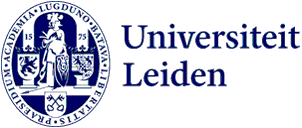
European support for Dutch-Flemish project in the fight against disinformation
Dutch and Flemish partners, including Leiden University, are joining forces as the European Digital Media Observatory (EDMO) in the fight against the spread of fake news, and have received the support of the European Commission.
Disinformation has caused a lot of damage in recent years, both abroad and in Dutch and Flemish society. The coronavirus crisis has played an important role here and fake news has spread like wildfire. Balanced, impartial and reliable fact-based reporting is a counterweight to this and is essential to a properly functioning democracy.
The European Commission recognises the relevance of the battle against disinformation and has awarded 2m euros to the Dutch-Flemish EDMO project (European Digital Media Observatory). Within the project a multidisciplinary hub will be set up for and by researchers, factcheckers, media companies and other stakeholders. Leiden University’s Nieuwscheckers are taking part in the project.
Leiden’s contribution
Leiden University’s Nieuwscheckers (in Dutch) are participating in the project. Universitary lecturer Alexander Pleijter is really pleased with the European Commission’s award. ‘Until now we’ve mostly received smaller grants for Nieuwscheckers, which meant we could work for a fixed amount of time or for a project. But this larger grant will make it possible to professionalise Nieuwscheckers in the longer term, which is really great. For our journalism students too, by the way, because we want to do things like hire guest lecturers who have specialised knowledge about image verification, for instance, or medical journalism.’
Pleijter hopes to be able to appoint three people to support Nieuwscheckers, with both the admin and the factchecking work. Among other things, Nieuwscheckers will chart and bring together the whole Flemish and Dutch factchecking network. Newsletter and meetings will ensure a lively network comes into being, so that mutual knowledge exchange can occur. ‘I have good faith that this will help us create more unity and that this will continue to exist after the two years.’
Increase media literacy and detect fake news
The collaboration is part of EDMO, an international network of hubs where disinformation experts can come together to share knowledge. Alongside the Dutch-Flemish hub, a further seven EDMO hubs will start in Europe this autumn. EDMO will increase public media literacy, in both the low countries and the rest of Europe.
Over the coming three years, the hub will not only detect burgeoning disinformation campaigns, but also produce and publish factchecks. A research team will also be appointed, which will analyse various strategies and methods for detecting fake news, with regard to their process, efficacy and applicability within the European policy and legal framework.
European collaboration
The partners in the EDMO project are bringing together complementary domains of expertise, from research to publication. On the Flemish side, VRT, Knack, KU Leuven and Textgain will set to work on the project. On the Dutch side, this will be the Netherlands Institute for Sound and Vision, Leiden University, University of Amsterdam, Algemeen Nederlands Persbureau (ANP) and the Bellingcat research collective. The partners will also collaborate intensively with Netwerk Mediawijsheid and Mediawijs, two network organisations that aim to promote media literacy in children, adults (vulnerable adults in particular) and media professionals in the Netherlands and Flanders.
The Dutch language is already well represented within the European EDMO network. The European Commission has also announced that it will fund a second hub in the low countries that will focus on factchecking in Dutch, French, German, English and Luxembourgish. This will be the job of Vrije Universiteit Brussel (Brussels School of Governance + SMIT), Université Saint-Louis Bruxelles, Mediawijs, RTL, Agence France Presse (AFP), EU DisinfoLab and Athens Technology Center, under the name of EDMO BELUX. EDMO BENL and EDMO BELUX will work together closely, of course.
‘Creating propaganda has been democratised’
Together with his colleague Alexander Pleijter, Peter Burger is the driving force behind Nieuwscheckers. In this interview he talks about what motivates them and the use and need for factchecking. ‘It’s often not at all difficult to check fake news. Do a Google reverse search and you can already avoid the majority of blunders.’
